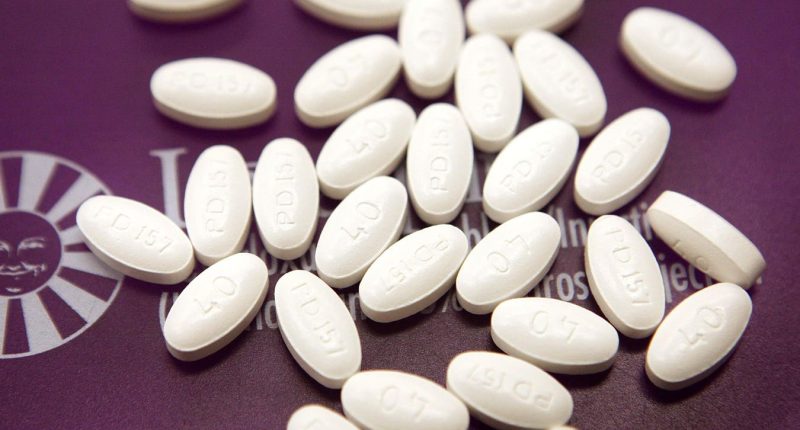Share this @internewscast.com
CHICAGO – JULY 23: Lipitor tablets sit in a tray at a Pharmacy July 23, 2008 in Chicago, Illinois. … More
Getty Images
Congress is considering reducing the amount of time that pharmaceutical drugs will be patent protected. Stop and think about that.
Congress is presently fiddling with the tax code to “pay for” the tax priorities of certain members. This is taking place as members of Congress work to extend the 2017 Tax Cuts and Jobs Act.
Supposedly the path to getting it extended includes “paying for it” with the reduction of patent protection for pharmaceutical drugs. Something’s very wrong with this picture.
To see why, it’s useful to contemplate Revolution Medicine’s daraxonrasib. The drug is making it possible for patients to survive one of the most consistent modern killers of all, pancreatic cancer. Away from daraxonrasib, AnaptysBio and GlaxoSmithKline’s dostarlimab is making it possible for doctors to treat cancer without chemotherapy, radiation and the cutting out of infected organs.
What’s important about this broadly is that the innovators developing crucial drugs for patients very much desire patent protection. So, while wise minds can and will continue to debate the value of patent protection, let’s forget debates for now and just think about possible changes in the tax code with drugmakers well in mind.
Major pharmaceutical companies want the patent protection given the immense costs associated with developing lifesaving and life-enhancing drugs. Which means a reduction in the number of years of patent protection to “pay for” other tax priorities reads as offensive and wrongheaded no matter one’s position on patent protection. Progress on the health front might be halted a little or a lot because members of Congress have other tax cuts they want to “pay for”?
The question must be asked simply because pharmaceutical companies view a reduction in the length of time patents are protected as a substantial cost, one that would make much more costly the development of drugs that have high odds of failure, but that by virtue of the latter have high odds of elongating or saving lives if they succeed. Which is a reminder that the tax cuts some in Congress want to pay for will be paid for by others.
All of which calls for a rethink of how Congress views the writing of tax law. It needs to be clarified that tax cuts are never a cost. Such a view implies that Congress exists as the benevolent source of good, and that the good it presumes to dole out is paid for by it. No, not remotely.
Congress is an effect of us. Congress has funds and taxing power not because it’s Congress, but because it has taxing power over the American people it serves.
By extension, anytime Congress reduces the tax burden on individuals and businesses, there is no cost associated with it. How could there be? To suggest there is, and as Congress is presently doing, is for members elected to serve us to presume that we’re working for them. No thanks. We’re the ones in charge.
Since we are, the notion that Congress will potentially sacrifice pharmaceutical progress on the altar of “paid for” tax cuts brings new meaning to insult. Americans are taxed too much, and they also suffer or die too easily because drugs that could dim their suffering and elongate their lives don’t yet exist. Let’s not sacrifice a much better, much healthier future on the false notion that we work for Congress, and that a reduction of the burden of Congress is something we the people must “pay for.”








